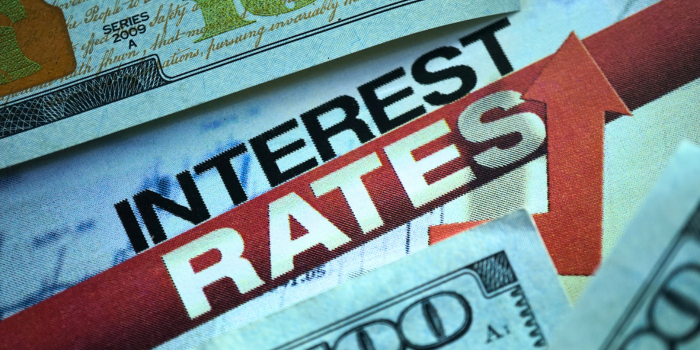Do Elections Affect the Housing Market? Understanding the Real Impact of Political Cycles on Home Sales

Debunking the Myth of Political Impact on the Housing Market: Why Elections Don’t Dictate Housing Trends
In every election cycle, the idea resurfaces that housing market trends will hinge on the presidential outcome. It's a theory that sparks heated conversations, as buyers and sellers wonder if they should postpone significant decisions like buying or selling a home. But here’s the reality: elections do not directly impact the housing market in any consistent or significant way.
This blog unpacks why political cycles don’t hold sway over housing and explores the real forces that shape market activity.
Do Elections Really Influence Home Sales? The Evidence Says No

It’s easy to assume that an election, particularly a presidential one, would shape broad economic sectors, especially real estate. However, historical data shows that election outcomes rarely impact the housing market's behavior in a predictable way. Let’s examine trends over the past few decades for more insight:
-
2004 and 2020: Both were election years marked by strong housing sales, surpassing typical non-election years. Yet, the housing market remained active, driven more by favorable economic conditions and demographic shifts than by political campaigns.
-
2012 and 2016: Sales aligned with usual patterns, showing no extraordinary rise or fall attributable to election anxieties or confidence.
-
2000 and 2008: Both of these years showed weaker home sales, yet they coincided with significant economic downturns. The dot-com bubble burst in 2000, while 2008 marked the onset of the Great Recession, which severely impacted housing. The correlation was far more economic than political.
From these examples, it’s clear that real estate activity isn’t inherently dependent on which party holds office. In fact, the housing market tends to follow broader economic indicators, such as interest rates, inflation, and consumer confidence, rather than the political landscape.
The Role of Media in Perpetuating the Election Myth

During election years, news outlets frequently spotlight how the market "might" change under different administrations. While these narratives generate interest, they often lack a solid foundation. Media-driven speculation can foster a sense of urgency or hesitation among buyers and sellers, but these projections rarely materialize into real, sustained market impacts. This underscores the importance of focusing on concrete, measurable factors, like interest rates and employment trends, over speculation.
The Real Drivers of Housing Market Activity

Instead of focusing on elections, it’s essential to consider the real reasons people buy and sell homes. These fundamental drivers rarely shift with the political tides:
-
Life Events: Life stages, not election results, create the primary demand in real estate. People buy homes because of marriage, the birth of a child, job relocation, or the need to downsize. These life changes are the cornerstone of real estate activity, creating natural ebb and flow regardless of which administration holds power.
-
Local Economics and Job Growth: Employment opportunities and local economic health influence housing demand significantly more than national politics. When companies expand or new industries arise in an area, they stimulate housing needs as people relocate for jobs, often fueling real estate growth far beyond any political effect.
-
Interest Rates and Lending Policies: Mortgage rates are a substantial factor in home affordability. While presidential policies can sometimes indirectly affect rates, the Federal Reserve's monetary policy usually dictates these shifts. Even during an election year, the Fed may adjust rates based on economic factors like inflation rather than election results, impacting buyer affordability and behavior more directly.
-
Supply and Demand Dynamics: Housing supply and demand is another crucial market force. When inventory is limited, prices often rise, regardless of political atmosphere. New construction cycles, zoning laws, and the availability of land are independent of presidential terms and play a larger role in price and availability than election-year rhetoric.
How Real Estate Investors View Election Cycles

For investors, property decisions hinge on long-term return potential rather than political shifts. Many successful real estate investors follow a buy-and-hold approach, understanding that political administrations change every few years, while the housing market moves in much longer cycles. Investors tend to prioritize asset appreciation, rental income potential, and market fundamentals—elements unaffected by short-term political shifts.
Mortgage Rates and the Federal Reserve: The Real Influencers

Highlighting the role of the Federal Reserve further clarifies how mortgage rates, not election cycles, impact the housing market. Many readers may not realize that the Fed, rather than political administration, wields the most influence over rates. The Fed adjusts rates in response to inflation, unemployment, and other economic indicators, not election outcomes. This is a key reason rates have historically fluctuated independently of election cycles.
Buyer and Seller Behavior: The Reality of Post-Election “Wait-and-See”
It’s natural for some buyers and sellers to adopt a “wait-and-see” approach, delaying decisions until after election results are announced. However, this behavior is typically brief, with activity resuming shortly after the election. While some choose to delay purchases, the effect on market trends is negligible. Highlighting this cyclical behavior helps readers understand that any small dips caused by election anxieties rarely have lasting impact.
Long-Term Market Drivers: Demographics and Housing Demand

The housing market is fundamentally driven by the people buying and selling homes, regardless of political cycles. For instance, Millennials currently make up a significant portion of the first-time buyer pool. Their purchasing power and life-stage housing needs will likely impact the housing market for years, regardless of political shifts. Demographics, housing demand, and family life cycles continue to move the market forward and will always carry more weight than election-year speculation.
Political Policy and Housing Market Realities
While politics and policy can shape economic landscapes, there is a lag in how, or if, they actually affect the housing market. Even if a candidate proposes tax incentives or housing reforms, these policies often undergo extensive revisions by Congress and implementation delays, lessening any immediate impact on the market. Here are some examples of how this plays out:
-
Housing and Tax Policies: Proposals impacting mortgage deductions or property taxes might gain attention during campaigns, but the process of passing and enacting these policies usually extends beyond a single term. Furthermore, economic shifts such as recessions or pandemics often overshadow these policies, creating more immediate influences.
-
Unpredictable Economic Events: Events like the COVID-19 pandemic have proven how unforeseen circumstances—not politics—can be the biggest market disruptors. Such events can lead to rapid market adaptations, often dwarfing any policy or political initiative.
The Takeaway for Buyers and Sellers: Decisive Action Beats Waiting

For readers on the fence, emphasize that decisive action—based on economic conditions and personal circumstances—tends to yield better results than waiting for an “ideal” political climate. Real estate market fundamentals and individual readiness ultimately matter more than political speculation. Buyers and sellers should consult with knowledgeable agents to assess market conditions instead of letting election cycles drive their decisions.
A Final Takeaway: Life, Not Elections, Moves the Market
If you’re considering buying or selling, take comfort in knowing that life events, interest rates, and local economics are more reliable indicators of market behavior than election results. While political outcomes may create temporary uncertainty, they are rarely the primary drivers of long-term trends in real estate.
In summary, despite the persistent myth, housing market trends don’t hinge on presidential elections. Market shifts are more likely to be driven by life’s milestones and economic cycles rather than who sits in the Oval Office. Instead of delaying decisions based on election cycles, it’s wise for buyers and sellers to focus on their personal needs and financial readiness.
Remember: In real estate, life’s major moments are the true power behind the housing market—not election outcomes.
Categories
- All Blogs (253)
- 13707 W Linanthus Road (3)
- 2223 N BEVERLY Place (5)
- Active Adult & 55 Plus Communities (12)
- Alamar (1)
- Anthem (3)
- Anthem Arizona (3)
- Arizona Relocation Guides (12)
- Avondale (2)
- Bridges at Gilbert (1)
- Buckeye Arizona (15)
- Builders (6)
- Builders in Avondale (1)
- Builders in Buckeye (1)
- Builders in Goodyear (1)
- Builders in Mesa (3)
- Builders in Peoria (2)
- Builders in Queen Creek (3)
- Builders in Scottsdale (3)
- Builders in Surprise (1)
- Buyers (157)
- Cadence (2)
- Cantamia (2)
- Chandler Arizona (6)
- Eastmark (2)
- Estrella (4)
- Financial Planning (36)
- Flagstaff Arizona (2)
- Fulton Ranch (1)
- General Real Estate (97)
- Gilbert Arizona (11)
- Glendale Arizona (7)
- Golf Course Communities (22)
- Goodyear Arizona (16)
- Guest Houses and ADUs (7)
- Income From Real Estate (35)
- Las Sendas (1)
- Litchfield Park Arizona (6)
- Maricopa Arizona (3)
- Market Update (17)
- Marley Park (3)
- Mesa Arizona (11)
- Military (5)
- Morrison Ranch (2)
- New Construction (22)
- New Construction Communities (22)
- News, Updates and Coming Soon (51)
- Norterra (1)
- Ocotillo (1)
- Palm Valley (7)
- Peoria Arizona (22)
- Phoenix Arizona (19)
- Power Ranch (2)
- Prescott Arizona (2)
- Queen Creek Arizona (4)
- REAL (8)
- Real Estate Agent Financial Planning (11)
- Real Estate Investing (58)
- Scottsdale Arizona (15)
- Sedona Arizona (1)
- Sellers (80)
- Senior Resources (14)
- Show Low Arizona (1)
- Spring Training (6)
- Sterling Grove (6)
- Sun City Arizona (2)
- Sun City Grand (1)
- Surprise Arizona (13)
- Tempe Arizona (4)
- Teravalis (1)
- Vacation Rental News (24)
- Verrado (15)
- Vistancia (12)
- Waddell Arizona (2)
- Waterston (1)
Recent Posts











About the Author
Eric Ravenscroft is a Top 1% REALTOR® across North America and one of Arizona’s most trusted real estate strategists. With 15 years of experience spanning real estate, wealth management, and investment planning, he helps clients make smarter, financially grounded decisions, from new construction and relocations to STR investments, 1031 exchanges, and long-term portfolio strategy.
Eric’s expertise has earned him industry recognition, Elite status with Real Broker, and features in major publications including the Wall Street Journal, MarketWatch, MSN, and Morningstar. Clients across the Greater Phoenix Metro rely on his clarity, strategic insight, and results-driven guidance.
Ready to make a confident real estate move? Call or text Eric today.
